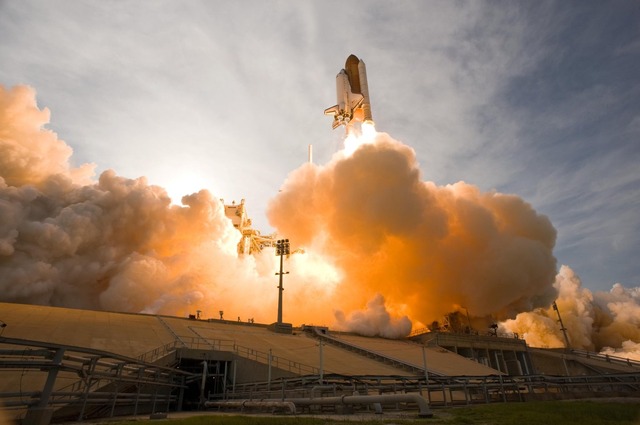NASA has announced its plans to invest $67 million towards an advanced electric propulsion project, in the hopes of increasing fuel efficiency in space flight.
Aerojet Rocketdyne, Inc. was awarded the Advanced Electric Propulsion System contract. NASA has tasked the company to develop a propulsion system that can perform better than the chemical propulsion system being used today. This electric propulsion system utilizes Hall thrusters, and is said to be at least 10 times more fuel efficient, with twice as much thrust capability than current systems NASA is using.
A Hall thruster is an electric propulsion technology that produces thrust by trapping electrons in a magnetic field, then ionizing and accelerating a noble gas, generally xenon. Other propellants are krypton, argon, iodine, bismuth, magnesium and zinc.
While Hall thrusters produce less thrust compared to rocket engines, Hall thrusters provide more efficient fuel economy.
This means a spacecraft has a bigger carrying capacity and more maneuvering room while in space.
NASA’s first ion electric propulsion thruster was successfully created at the Glenn Research Center during the 1950s. It was first tested in space with Glenn’s Space Electric Rocket Test 1 in 1964.
Engineers from Glenn and the Jet Propulsion Laboratory have developed a Hall thruster with more power, designed in a vacuum chamber here on Earth to simulate space. This new propulsion system was then tested in space in 2015 on board the USAF X-37B. The most recent use of this system was during NASA’s Dawn mission to the giant asteroids Vesta and Ceres.
NASA has been relying more on solar electric propulsion for longer missions, and deeper exploration of more destinations in space. NASA hopes that this Advanced Electric Propulsion System can enable more space missions for longer periods, missions to Mars and perhaps in 2020, push an asteroid to orbit around the moon.
























